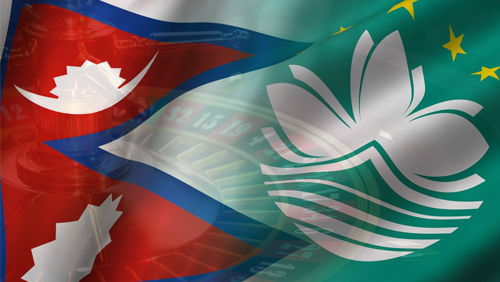 Nepal’s gambling industry is thriving, despite not being on the radar of most investors or casino developers.
Nepal’s gambling industry is thriving, despite not being on the radar of most investors or casino developers.
The South Asian country is practically in the nascent category in the Asian gaming playbook, but experts said that doesn’t stop the daring investors from betting on Nepal’s proximity to India—along with its economic growth and general lack of casino-style gaming in the country—as an attractive investment opportunity.
Grant Govertsen, principal analyst at Union Gaming Securities Asia Ltd., said the developing casino industry in Nepal offers investors access to gaming assets that don’t depend on Chinese players.
In fact, the target of Nepal’s casinos are the middle class residents of its neighboring country—India—who are already familiar with many forms of gambling, but don’t have a place to gamble. In his report, Govertsen said India generates about $10 billion per year in gross gaming revenue, including legal and non-legal types of gambling, and casino and non-casino gambling.
“We would highlight that there are more than 300 million persons living in the three Indian states immediately adjacent to Nepal and approximately 400 million when including the state of West Bengal (Calcutta),” Govertsen said in his report. “Granted, like most of India the majority are too poor to be considered target customers, but this still leaves many millions of individuals who are, indeed, potential casino customers.”
Govertsen also drew similarities between India and China, particularly the two countries’ population size.
“We are certainly not saying that Nepal is the next Macau but we do think the opportunity is compelling enough to be worthy of a closer look,” Govertsen said. “The bottom line is that India is home to a population that is nearly the size of China’s, and like China, likely has at least a couple hundred million individuals who are wealthy enough to participate in casino gambling at some level.”
And just like China, India too does not allow onshore casino gaming, which presents an opportunity for casinos in bordering countries—Nepal, for instance—to capitalize on it. Govertsen said Nepal’s location, like Macau, allows for easy access and unrestricted visitations.
Nepal’s casino industry has been showing signs of recovery after a tragic 2014. Last year, the government shut down local casinos—all 10 of them—due to their failure to comply with new regulations. Casino Regulation 2013 doubled that amount of royalties and fees the casinos needed to ante up the government. It also banned gambling from taking place within 5km of international borders, and restricted electronic gaming houses to operating within the walls of four-star hotels.
Now, companies in the region are starting to notice Nepal. Last February, Hong Kong-based Silver Heritage began operating the Millionaire’s Club and Casino at Shangri-La Hotel in Kathmandu, and has already started plans for more projects in the country.
“Silver Heritage is also embarking on a series of three greenfield developments along the Nepal/India border via its Tiger Palace moniker. Currently, the company’s first Tiger Palace is under construction in Bhairahawa, Nepal,” said Govertsen.
The 400-room project, which will cost about $50 million, will open in mid-2016, he noted.